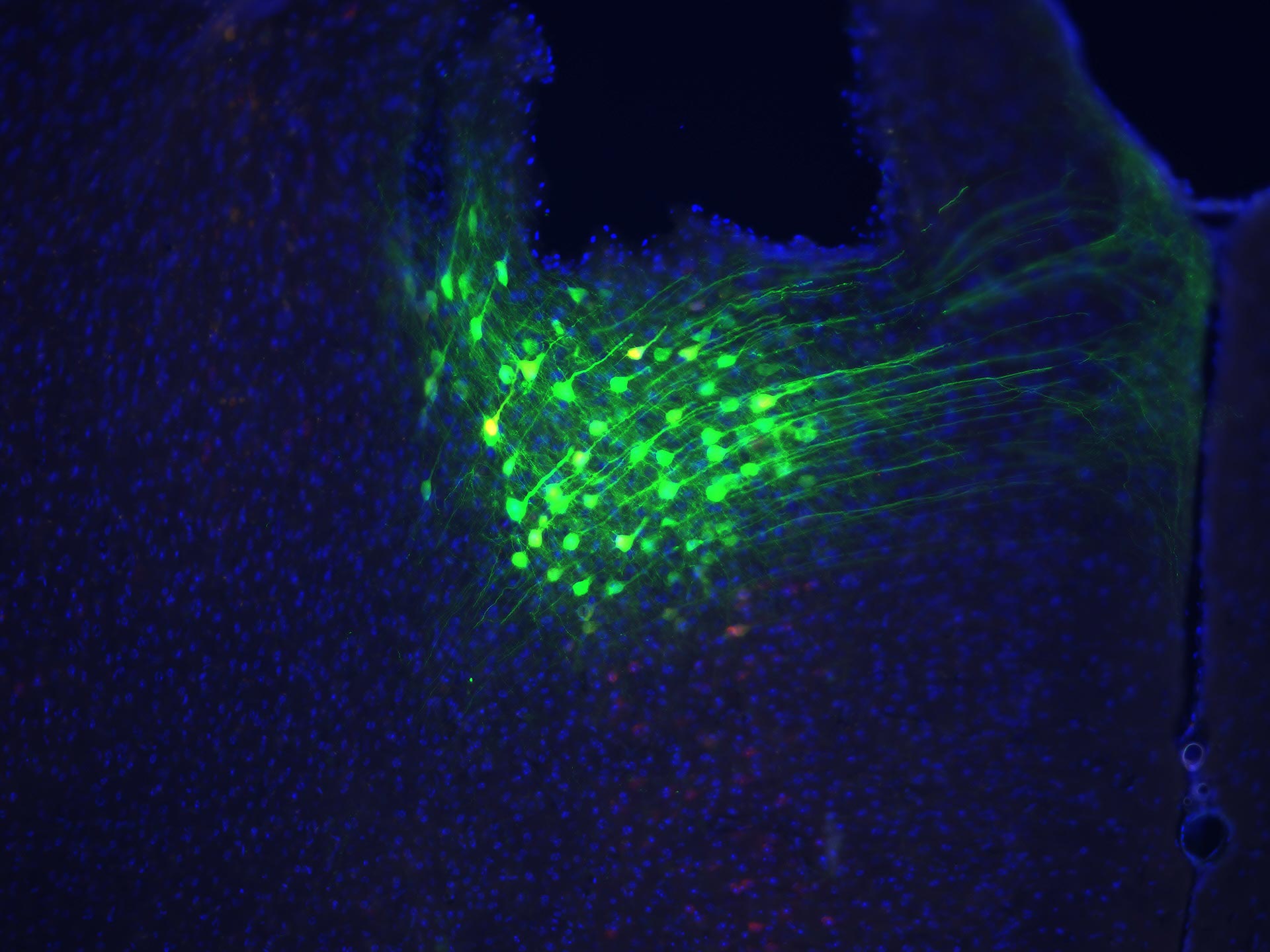Breakthrough brain discovery may lead to ‘yoga pill’, scientists say
Discovery of pathway behind voluntary breathing and emotional regulation in mice brains may lead to new treatments for anxiety and stress disorders
A breakthrough brain circuit discovery may lead to new treatments for anxiety and stress disorders, and potentially a pill providing the benefits of yoga.
Researchers from the Salk Institute in the US have discovered the pathway behind voluntary breathing and emotional regulation in mice brains.
Their study, published recently in the journal Nature Neuroscience, reveals connections between the brain’s more complex regions and the breathing centre of the primitive brainstem which enables breathing coordination with emotional state.
While breathing is mainly automatic, human beings and some animals can self-soothe by slowing breathing, an approach that’s a central part of practices like mindfulness and yoga.
How exactly the brain regulates breathing and how this impacts anxiety and one’s emotional state is little understood. Scientists say only subconscious breathing mechanisms in the brainstem have been thoroughly understood so far.

In the new study, researchers set out to find conscious top-down mechanisms connecting emotional regulation and breathing.
They first assessed a brain connectivity database to probe connections between different brain areas. The analysis revealed a potential breathing circuit connecting a frontal region, called the anterior cingulate cortex, to an intermediate brainstem area, which then connected to the medulla just below.
Previous studies have shown that the medulla, when active, initiates breathing but signals coming down from a brainstem region are known to inhibit this activity and slow down breathing.
Researchers hypothesised that certain emotions or behaviours could lead to the activation of the brainstem region, which in turn could lower activity in the medulla and slower breath.

To test the theory, they recorded brain activity in mice when their breathing was altered during activities like sniffing, swimming, and drinking as well as during conditions inducing fear and anxiety.
Researchers found that when the connection between the cortex and the brainstem region was activated, mice were calmer and breathed more slowly.
This communication decreased when they were in anxiety-inducing situations, and breathing rates went up.
By following this pathway, researchers discovered a group of neurons in the frontal cortex of the mice brain that connects to the brainstem and governs essential functions like breathing.

This connection, researchers say, enables mice to coordinate their breathing with their current behaviour and emotional state.
Further analysis of the connection revealed a new set of brain cells and molecules which scientists believe can be targeted with drugs.
Researchers say the findings may lead to long-term solutions for people with anxiety, stress, and panic disorders.
“Our findings got me thinking: could we develop drugs to activate these neurons and manually slow our breathing or prevent hyperventilation in panic disorder?” study co-author Jinho Jhang said.
“I want to use these findings to design a yoga pill. It may sound silly, and the translation of our work into a marketable drug will take years, but we now have a potentially targetable brain circuit for creating therapeutics that could instantly slow breathing and initiate a peaceful, meditative state,” Sung Han, another author of the study, said.
Join our commenting forum
Join thought-provoking conversations, follow other Independent readers and see their replies
Comments
Bookmark popover
Removed from bookmarks